World
Out in the World: LGBTQ news from Europe and Asia
Lesbian Serbian Prime Minister Ana Brnabić has stepped down

LITHUANIA
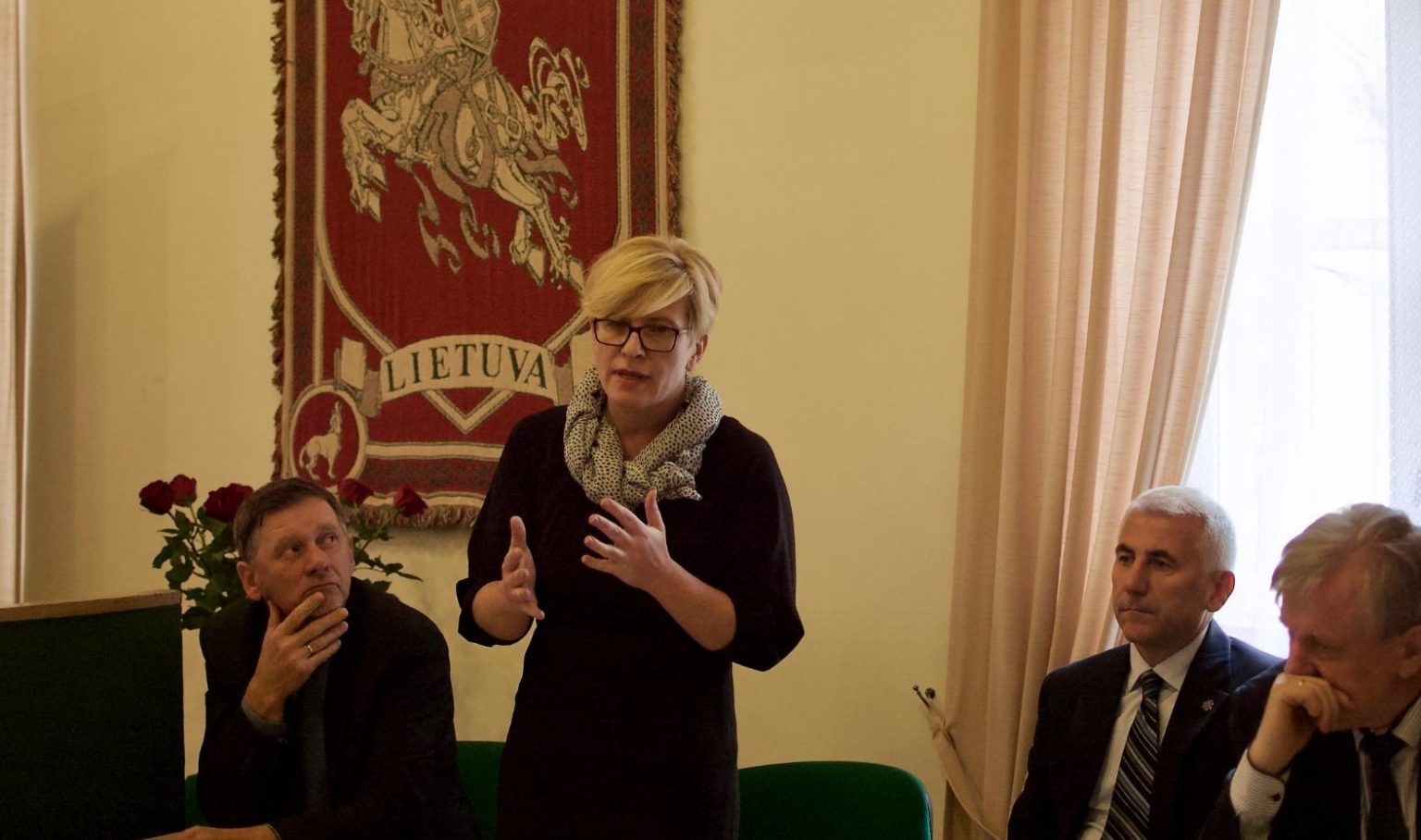
A group of same-sex couples is taking the Lithuanian government to the European Court of Human Rights, seeking access to civil unions, marriage and parental rights.
The couples involved in the suit are seeking registration of civil partnerships and recognition of same-sex marriages contracted in foreign countries. In a separate case, a same-sex couple is seeking equal parenting rights for their child. The petitioners will also be asking the Lithuanian Constitutional Court to clarify the definition of marriage in the constitution.
Lithuania does not recognize any form of same-sex relationship. A bill to legalize civil unions was proposed by the governing coalition and is one vote from passing through Parliament, but has been put on hold amid fears that it doesn’t have enough support to pass.
“The year-long litigation marathon clearly shows the reasons why trust in courts is so low in Lithuania. International law does not work in Lithuania,” Martynas Norbutas, one of the petitioners, said at a press conference.
The European Court of Human Rights is a supranational court for all members of the Council of Europe, which tries cases involving the European Convention on Human Rights. While the court has found that the convention does not require states to allow same-sex marriage, it has in the past found that same-sex couples must be grants some alternative status that is equivalent to marriage. However, it is up to individual states to implement the court’s rulings, as it has no enforcement mechanism.
Of the Council of Europe’s 46 members, 21 allow same-sex marriage, 10 allow same-sex civil unions and 15 currently have no recognition of same-sex unions.
In February, Prime Minister Ingrida Šimonytė said she was disappointed that members of her coalition had gone back on their word by failing to support the civil union law.
“I know very well that I cannot convince some of my colleagues despite the fact that the absolute majority of our factions vote for that law,” Šimonytė said on the local news program Laisvės TV.
It isn’t the first time Lithuania’s unruly coalition has failed to pass an LGBTQ rights law. Last year, the government tried to repeal an old “LGBT propaganda” law that the European Court ruled violated the convention’s right to freedom of expression, but the bill was voted down in parliament. A separate bill that would have seen Lithuania join the Council of Europe’s Istanbul Convention on Domestic Violence was also voted down after anti-LGBTQ activists began a campaign linking the convention to “gender ideology.”
Parties on both sides of the issue are attempting to shore up support ahead of parliamentary elections expected in October.
In neighboring Poland, the newly elected government says it is still planning to introduce same-sex civil unions, although it will miss its self-imposed deadline of doing so within its first 100 days. Equalities Minister Katarzyna Kotula told OKO.press that the government is still working with its coalition partners to come to agreement on what civil unions will entail, with the government preferring that same-sex couples get all the rights that come with marriage, including adoption and parenting rights.
GEORGIA
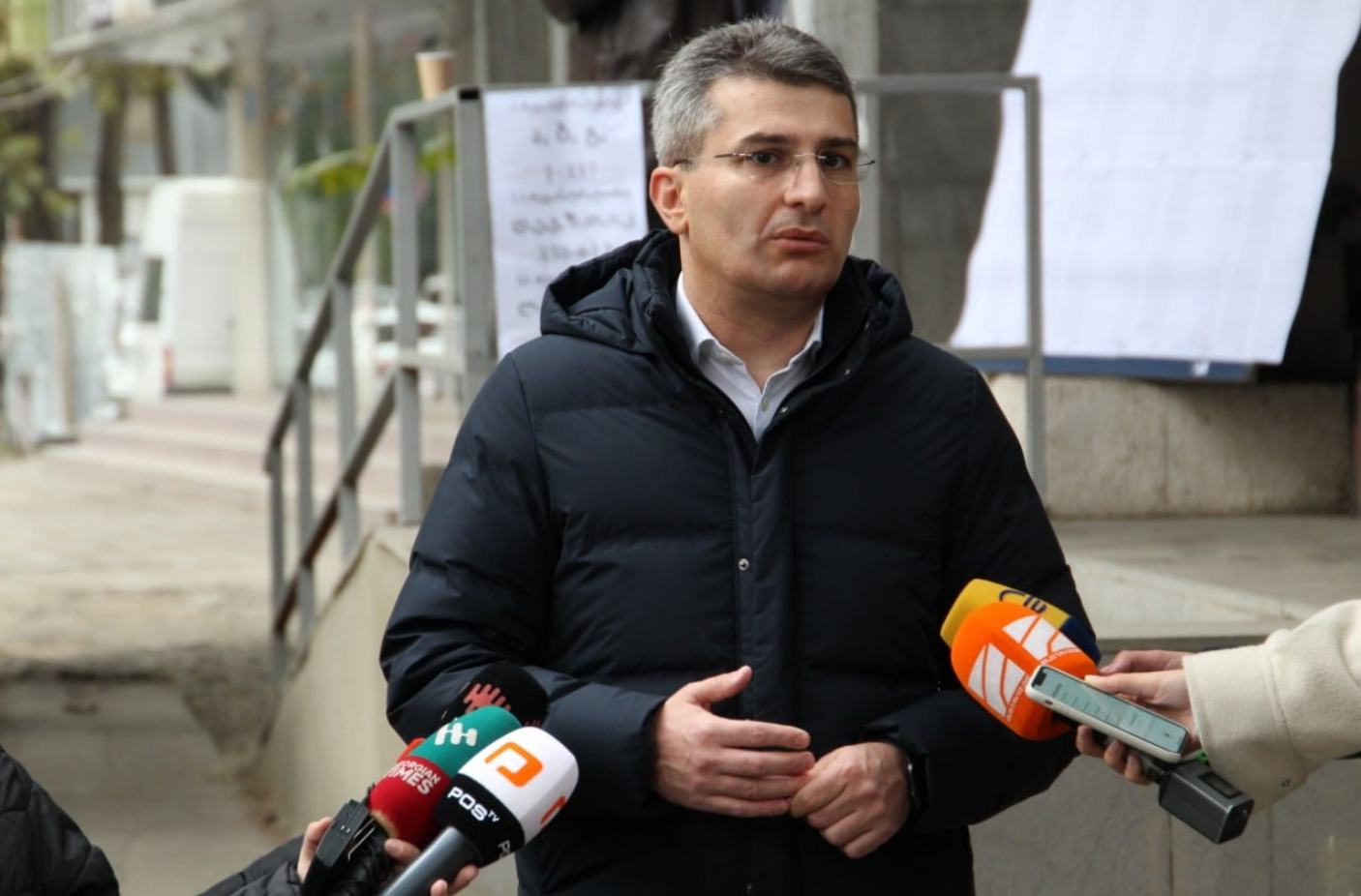
The government of the former Soviet republic of Georgia has announced plans to introduce a series of laws and constitutional amendments to limit so-called “LGBT propaganda,” ban gender change and ban adoption by LGBTQ people.
Georgia’s Parliament amended the constitution in 2017 to ban same-sex marriage. This proposal would add a new special constitutional law for the protection of family values and minors.
Under the new constitutional law, the state would be forbidden from recognizing any relationship other than heterosexual relationships, restrict adoption to married heterosexual couples and heterosexual individuals, ban any medical treatment to change a person’s gender and require that the government only recognize gender based on a person’s genetic information and ban any expression or organization promoting same-sex relationships or gender change.
Mamuka Mdinaradze, the executive secretary of the governing Georgian Dream party, says the goal of the constitutional amendments is to “protect society from pseudo-liberal ideology and its inevitable harmful consequences.”
Mdinaradze says the reforms will allow the government to block attempts by courts or international bodies to force the government to recognize same-sex marriage or civil unions.
While the Georgian government has been pursuing an alignment with the West and membership in the European Union, its government has recently taken many regressive steps on human rights and rule of law.
Last year, it introduced a “foreign agents” law that would have cracked down on media and non-governmental organizations that are critical of the government. The government backed down after massive protests.
But the conservative Georgian society appears unlikely to mobilize in massive numbers to oppose this bill, even if it does attack basic human rights.
However, as the proposed reforms would conflict with the European Union’s standards for free expression and human rights, the proposal may force Georgians to decide between repressing LGBTQ rights and its goal of EU membership.
“As an EU candidate country, Georgia is expected to align its laws with EU legislation,” the EU delegation in Georgia told German newspaper DW. “The candidate country must have achieved stability of institutions guaranteeing respect for human rights and respect for and protection of minorities.”
The Georgian Dream party seems to have introduced the bill to shore up support ahead of elections scheduled for October.
SERBIA

Serbian Prime Minister Ana Brnabić has stepped down after seven years in power, in a reshuffle of President Alexander Vučić’s government. Brnabić will take on the role of speaker of Parliament, while Vučić has named his ally Miloš Vučević as her successor.
Brnabić became the first woman and the first lesbian to hold the office of prime minister of Serbia, or to be a leader of any Eastern European country, in 2017. She is also the longest-serving person to have held the office.
She is still the most prominent LGBTQ person in the conservative, Eastern Orthodox country.
During her time in office, her status as a lesbian drew very little notice or criticism from Serbian society. She was the first leader of a Balkan country to attend a Pride march when she attended Belgrade Pride in 2017. She was frequently seen with her partner Milica Đurđić, who gave birth to their son in 2019.
However, despite her prominent title, it has been said that Brnabić wielded little actual power in the Serbian government, which is dominated by Vučić.
Brnabić has said that she didn’t want to be seen as the “gay prime minister” and that she prioritized policy goals other than LGBTQ rights in office. In turn, Serbia made little progress on expanding LGBTQ rights during her term.
The government introduced a civil unions bill in 2020 but shelved it months later amid backlash from legislators and a veto threat by Vučić. Beyond that, Brnabić’s government introduced a ban on discrimination against intersex people and removed regulations that barred LGBTQ people from accessing IVF or donating sperm.
During her time in office, Freedom House downgraded its classification of Serbia from “Free” to “Partly Free” due to Vučić’s increasingly authoritarian use of power and crackdowns on local media.
The government shuffle comes after December elections that were widely disputed as being rigged to favor the government. Last year, Serbia was rocked by months of nationwide protests against the government in the wake of rising gun violence, which a new opposition bloc had hoped would lead to gains in Parliament. Instead, the government won a majority.
JAPAN
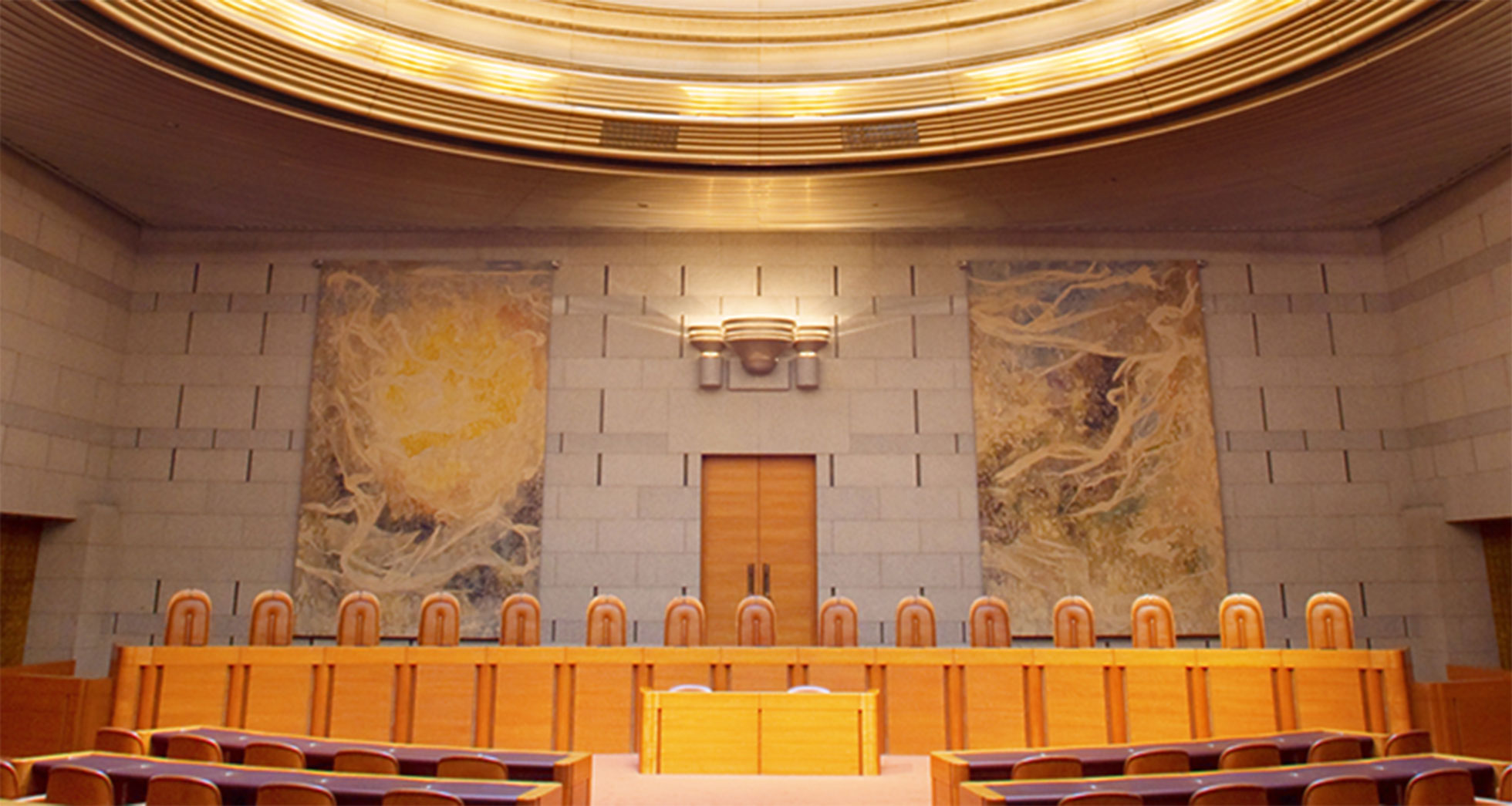
The legal battle to achieve same-sex marriage in Japan reached a new milestone, as the couples involved in a court case in Sapporo announced plans to appeal their loss to the Supreme Court, and in a separate case, the Supreme Court ruled that same-sex couples must get access to a crime victims benefit on an equal basis with married couples.
Same-sex couples have been waging a multi-front fight for same-sex marriage through the courts in Japan, given the national government’s long-standing opposition to addressing LGBTQ rights.
In March, the Sapporo High Court delivered the first appellate-level ruling on same-sex marriage, finding that the government’s refusal to allow same-sex marriage created a “state of unconstitutionality” because it discriminated against same-sex couples, but it otherwise ordered no compensation or remedy for the affected couples.
The couples have now announced they plan to appeal the decision to the Supreme Court.
One of the plaintiffs, Eri Nakaya, said at a press conference that the legal fight was essential for queer Japanese couples.
“If we back out now, legal recognition will not be achieved in the foreseeable future. I hope the Supreme Court will also declare (the same-sex marriage ban) unconstitutional,” he said.
Before the Supreme Court weighs in, more appellate court decisions are likely. District courts in Nagoya, Fukuoka and two courts in Tokyo have ruled similarly to the Sapporo court, while a district court in Osaka has upheld the ban on same-sex marriage.
But the Supreme Court may have tipped its hand in a ruling last week, which found that same-sex couples must be granted access to a benefit provided to victims of crime on the same basis as married heterosexual couples. The court came to that conclusion by reasoning that the purpose of the benefit — to help people recover after a crime — does not change depending on the gender of the victim or their partner.
While the ruling is limited to this one specific benefit, it appears likely that the same reasoning that led the court to this conclusion ought to be applicable to the constellation of benefits that are associated with marriage. Commentators have said that the same logic should apply to pensions, health insurance and family leave.
In the background of these decisions, local governments have increasingly come to recognize same-sex couples and families through legally non-binding “partnership certificates,” which are available or soon to be available in 29 of Japan’s 47 prefectures, as well as more than 400 municipalities.
Companies are also increasingly offering benefits to employees’ same-sex partners, including most recently Disney, which announced that it would provide benefits to same-sex partners of employees at Tokyo Disneyland last week.
NEW ZEALAND

In what Auckland police are treating as a hate crime, video captured three people painting over the New Zealand city’s Pride crosswalk with white paint, the latest in a brewing war over the LGBTQ Pride symbols being waged by Christian extremists in the South Pacific country.
A video of the vandals was posted to the TikTok account @aucklandcitynight00.
Auckland police say that the rainbow crosswalk on Karangahape Road in the heart of the city’s gay nightlife district was vandalized around 4 a.m. local time on March 27. Video shows three people in hooded sweatshirts and balaclavas stopping traffic to pour white paint on the road and cover the crosswalk with long paint rollers.
The vandals left the scene in a van that had its registration plates removed but police say they were able to trace the distinctively painted van’s owner and executed a search warrant on a property linked to the owner. No arrests have yet been made.
Much of the white paint had washed away due to rain and traffic, but the crosswalk still showed damage late in the day.
It was the second Pride crosswalk to be vandalized last week after a crosswalk in Gisborne, about 300 miles southwest of Auckland, was vandalized Monday morning.
The rainbow crosswalk on Gisborne’s main street had been painted over by anti-LGBTQ protesters who were upset that the local library was hosting a drag queen story hour. The next day, protesters and counter-protesters turned up at the library’s storytelling event. Then on Wednesday night, three people once again tried to paint over Gisborne’s restored rainbow crosswalk and were arrested by police who were lying in wait.
Three people have been accused of vandalism — two men aged 46 and 36, and a woman aged 45. A fourth suspect fled the scene, and police are still searching for him.
The Gisborne protesters were affiliated with the extremist Divinity Church, a Christian cult led by Brian Tamaki with around 1,700 members, according to the latest New Zealand Census. Tamaki preaches a far-right political ideology alongside anti-LGBTQ messages.
The threats have already led to drag queen story hours to be cancelled in the cities of Rotorua and Hastings, about 150 and 300 miles south of Auckland respectively. Librarians in both cities said the cancellations were made due to security concerns after the Divinity Church spread threats and misinformation about the events on social media.
He has said he intends for his church to continue protesting against town councils and libraries that host LGBTQ events and plans to continue vandalizing rainbow crosswalks, although he has denied any involvement in the Auckland crosswalk vandalism.
Tamaki has previously blamed the 2011 Christchurch earthquake on homosexuality.
AUSTRALIA
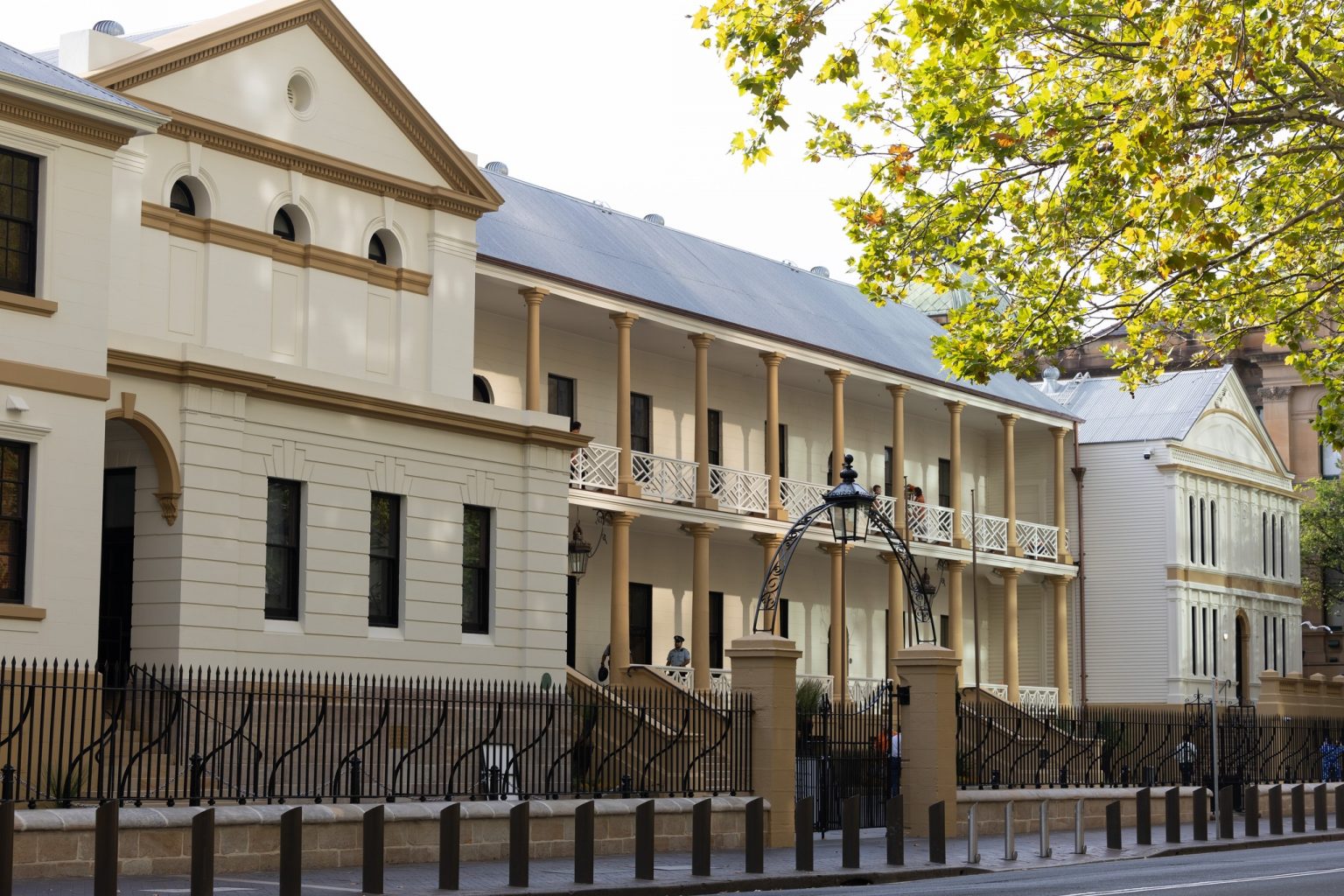
Making good on a campaign promise, New South Wales’ Parliament passed a law banning conversion therapy, making it the fourth Australian state or territory to ban the discredited practice that seeks to change people’s sexual orientation or gender identity.
The ban takes effect in one year and imposes a maximum penalty of up to five years imprisonment for any person that delivers conversion therapy that causes significant harm. The law also includes a civil complaints scheme.
New South Wales joins Queensland, Victory and the Australian Capital Territory in banning the practice. The governments of Tasmania and Western Australia have also proposed to ban conversion therapy.
“Conversion therapy proceeds on the basis that people in the LGBTQ+ community are broken, they need fixing,” says New South Wales Attorney General Michael Daley. “But we like them just the way they are.”
Worldwide, conversion therapy has been banned in 13 countries: Belgium, Canada, Cyprus, Ecuador, France, Germany, Greece, Iceland, Malta, New Zealand, Spain, Portugal and Norway. A bill to ban the practice nationwide in Mexico is awaiting a final vote in the nation’s Senate after it passed through the Chamber of Deputies last week
World
Out in the World: LGBTQ news from Europe and Asia
Iraqi MPs passed bill that criminalizes same-sex relationships, transgender people

IRAQ
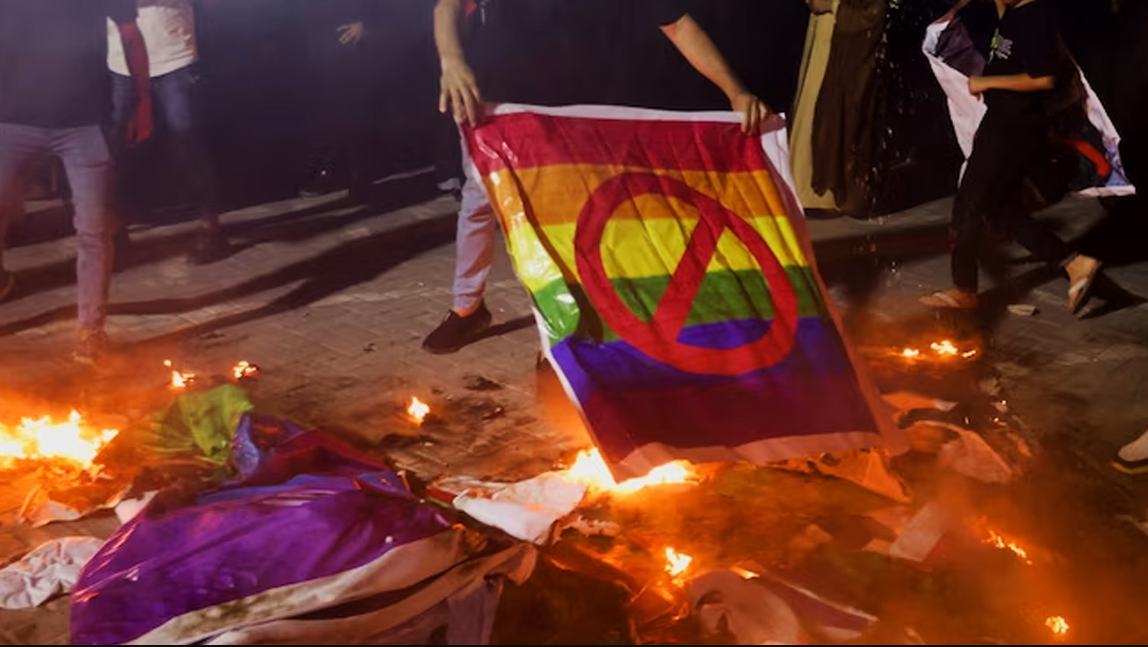
A law passed by the Iraqi parliament Saturday criminalizes same-sex relationships with a maximum 15-year prison sentence and also penalizes transgender Iraqis who face potential prison sentences ranging between one and three years under the new law.
MP Nouri al-Maliki told the AFP news agency that passage of the measure was delayed until after Prime Minister Mohamed Shia al-Sudani’s visit to Washington earlier this month. A second MP, Amir al-Maamouri, told Shafaq News that the new law was “a significant step in combating sexual deviancy given the infiltration of unique cases contradicting Islamic and societal values.”
In a statement released by State Department spokesperson Matthew Miller noted:
“The United States is deeply concerned by the Iraqi Council of Representatives’ passage of an amendment to existing legislation, officially called the Anti-Prostitution and Homosexuality Law, which threatens constitutionally protected human rights and fundamental freedoms. The law bans same-sex relations with steep fines and imprisonment and punishes those who ‘promote homosexuality.’ Limiting the rights of certain individuals in a society undermines the rights of all.
This amendment threatens those most at risk in Iraqi society. It can be used to hamper free-speech and expression and inhibit the operations of NGOs across Iraq. The legislation also weakens Iraq’s ability to diversify its economy and attract foreign investment. International business coalitions have already indicated that such discrimination in Iraq will harm business and economic growth in the country.
Respect for human rights and political and economic inclusion is essential for Iraq’s security, stability, and prosperity. This legislation is inconsistent with these values and undermines the government’s political and economic reform efforts.”
British Secretary of State David Cameron in a statement posted to X called the law “dangerous and worrying.” He added “no one should be targeted for who they are. We encourage the government of Iraq to uphold human rights and freedoms of all people without distinction.”
GERMANY

According to German media outlet Preussische Allgemeine Zeitung, a group of professional footballers from the German Football League (Deutsche Fußball Liga) will be announcing that they are gay on the International Day Against Homophobia, Biphobia and Transphobia on May 17.
PinkNewsUK reported the German outlet has quoted Marcus Urban as a source. Urban is a former footballer in Germany who came out after retiring. He was the second player worldwide to come out, only after British player Justin Fashanu in 1990. Fashanu was the only prominent player in pro English football to come out, until Jake Daniels in 2022.
Urban told Editorial Network Germany (Redaktions Netzwerk Deutschland) the move is part of an initiative in Germany in an attempt to encourage closet LGBTQ players and others working in football to come out. All clubs involved are said to have been made aware of the imminent announcement.
Urban is a co-founder of Diversero, a global community who celebrate and live diversity that he said contact with the players. Speaking about the closeted players he noted: “There is controversy there. Do I still want to wait until the world of football becomes the way I want it to be?”
COUNCIL OF EUROPE
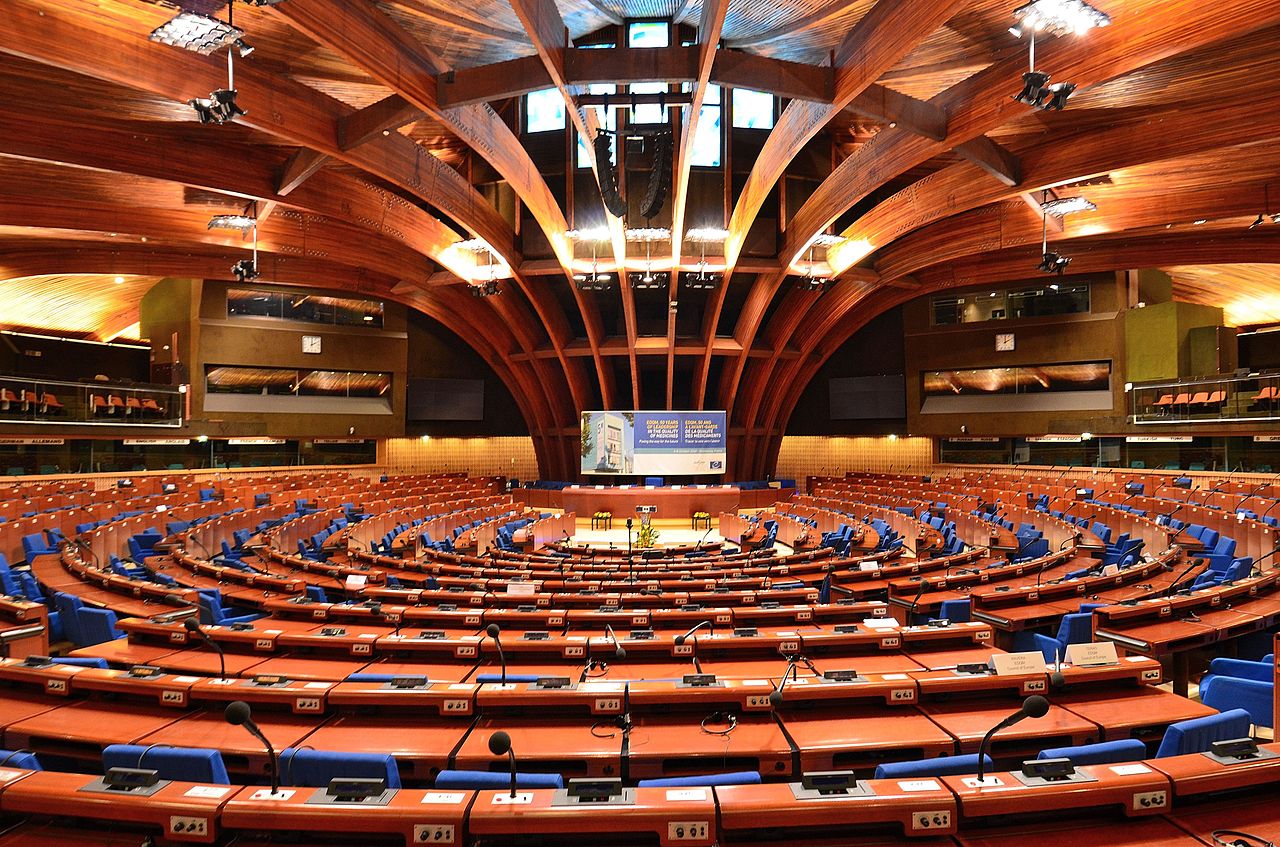
The Council of Europe’s Committee for the Prevention of Torture has issued a set of standards and recommendations to European prisons aimed at ensuring that trans prisoners, a highly vulnerable segment of the prison population, are treated with respect and protected from the risks of ill-treatment.
In its annual report for 2023, the CPT notes that it is increasingly meeting trans persons held in prisons during its visits to states to monitor the conditions of detention of persons deprived of liberty. The CPT aims to provide guidance to governments and prison administrations, considering that European countries are currently implementing divergent policies and that there is a current debate as to how to treat transgender persons in prison.
CPT President Alan Mitchell said: “Prisons are a microcosm of society, often with amplified issues given the smaller confined settings. Transgender persons held in detention can be in a situation of vulnerability and a heightened risk of intimidation and abuse. It is concerning that a few states still deny the existence of transgender persons and make no specific provision for their treatment in prison, which may expose them to ill-treatment. Governments should put in place safeguards to protect transgender persons in detention and ensure that they are treated with dignity and care.
“The report identifies as a challenge the widely divergent criteria of placement of transgender persons throughout Europe depending on individual states’ policies. Some are based on self-identification and declaration, others on legal recognition, and a few on gender-affirming surgery. Few states have specific policies and legislation to guide prison authorities on placement of transgender persons, often done on a case-by-case basis subject to an individual risk assessment.
In line with the European Court of Human Rights case law, the CPT highlights that national legislation should provide for the recognition of persons of a gender other than that assigned by birth and not establish any pre-condition to legal gender recognition such as gender-affirming surgery. Consequently, when a person self-identifies as transgender in the prison admission procedure, this should be sufficient for the prison administration to treat the person as such.
The CPT considers that transgender persons should be accommodated in the prison section corresponding to the gender with which they identify. Although there have been a few unfortunate cases of the placement in women’s prison sections of transgender persons accused or convicted of sexual offences against women, the committee highlights that, as for any other prisoners, they should only be placed elsewhere for exceptional security or other reasons after an individual risk assessment. In addition, transgender prisoners should be consulted about their placement preference during the entry procedure and be given the option to keep their gender identity confidential.
During its visits to several states, the CPT met transgender women prisoners held in male sections who stated they did not feel safe, and some alleged having been sexually abused and assaulted by other prisoners or verbally abused by staff. In some countries, the CPT also met transgender women who reported that they were often not allowed to shower at different times as male prisoners, were humiliated by being referred to by their male names or prohibited from wearing women´s clothes.
In the CPT’s view, transgender prisoners should be allowed to dress in the clothes associated with their self-identified gender and be addressed by their chosen names by prison staff. Prison administrations should also address them by their preferred names, titles and pronouns in verbal and written communication, irrespective of official documents. Further, national and prison authorities should ensure that all prison staff is trained to understand and address the specific needs of transgender persons and the risks they are exposed to in the prison environment.
The committee urges national authorities to address the risks of discrimination of transgender persons in prison and implement policies to prevent and combat ill-treatment by prison staff and inter-prison violence and intimidation targeting them. It also provides guidance to ensure that body searches of transgender persons are not perceived as degrading by the persons concerned.”
UNITED KINGDOM
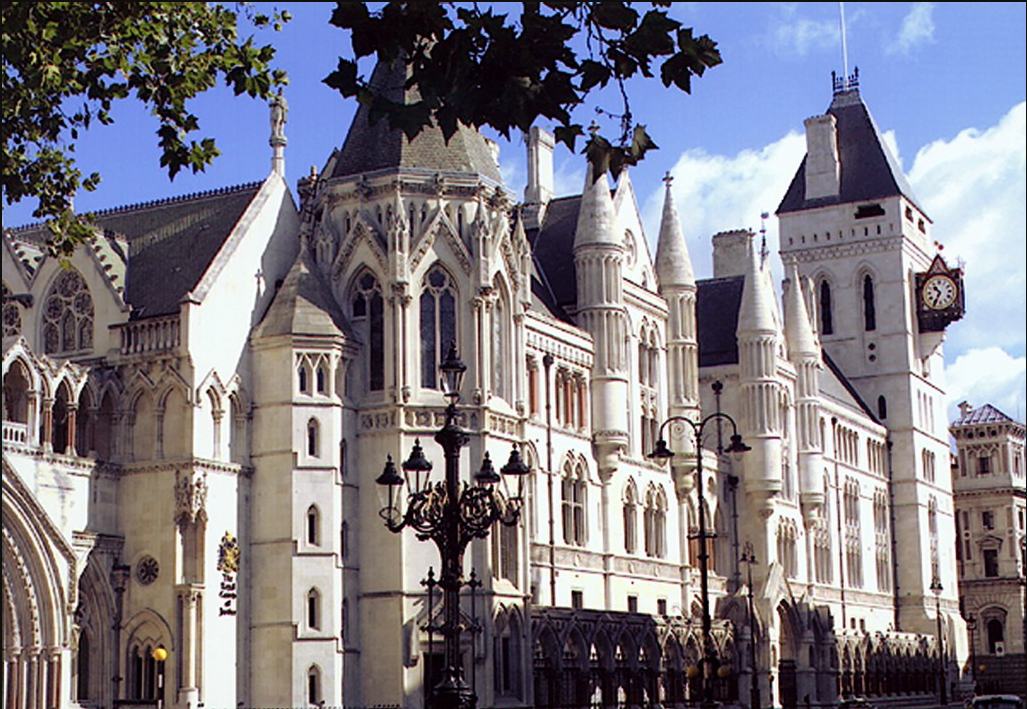
Royal Courts of Justice (Photo courtesy of the British government)
The Austen Hays Limited law firm this week launched a class action lawsuit in the High Court of Justice in London against West Hollywood, Calif.,- based Grindr, alleging that the world’s largest LGBTQ casual encounters app had violated British data protection laws.
Reuters reported that the suit claims British users’ highly sensitive information, including HIV status and the date of their latest HIV test, were provided to third parties for commercial purposes.
In a statement released to the media a spokesperson for Grindr said: “We are committed to protecting our users’ data and complying with all applicable data privacy regulations, including in the UK. We are proud of our global privacy programme and take privacy extremely seriously. We intend to respond vigorously to this claim, which appears to be based on a mischaracterisation of practices from more than four years ago, prior to early 2020.”
The Austen Hays Limited law firm’s managing director Chaya Hanoomanjee responded saying:
“Our clients have experienced significant distress over their highly sensitive and private information being shared without their consent. Many have suffered feelings of fear, embarrassment, and anxiety as a result,” Hanoomanjee said.
“Grindr owes it to the LGBTQ+ community it serves to compensate those whose data has been compromised and have suffered distress as a result, and to ensure all its users are safe while using the app, wherever they are, without fear that their data might be shared with third parties,” she added.
So far 670 people have signed up to the claim, and the firm said “thousands” more people had expressed interest in joining.
The Irish Examiner reported on Monday, April 22 that the claim against Grindr will be focused on the periods before April 3, 2018, and between May 25, 2018, and April 7, 2020, meaning newer users are unlikely to be able to join. Grindr changed its consent mechanisms in April 2020.
Grindr, based in Los Angeles, announced it would stop sharing users’ HIV status with third-party companies in April 2018 after a report by Norwegian researchers revealed data sharing with two companies.
HONG KONG
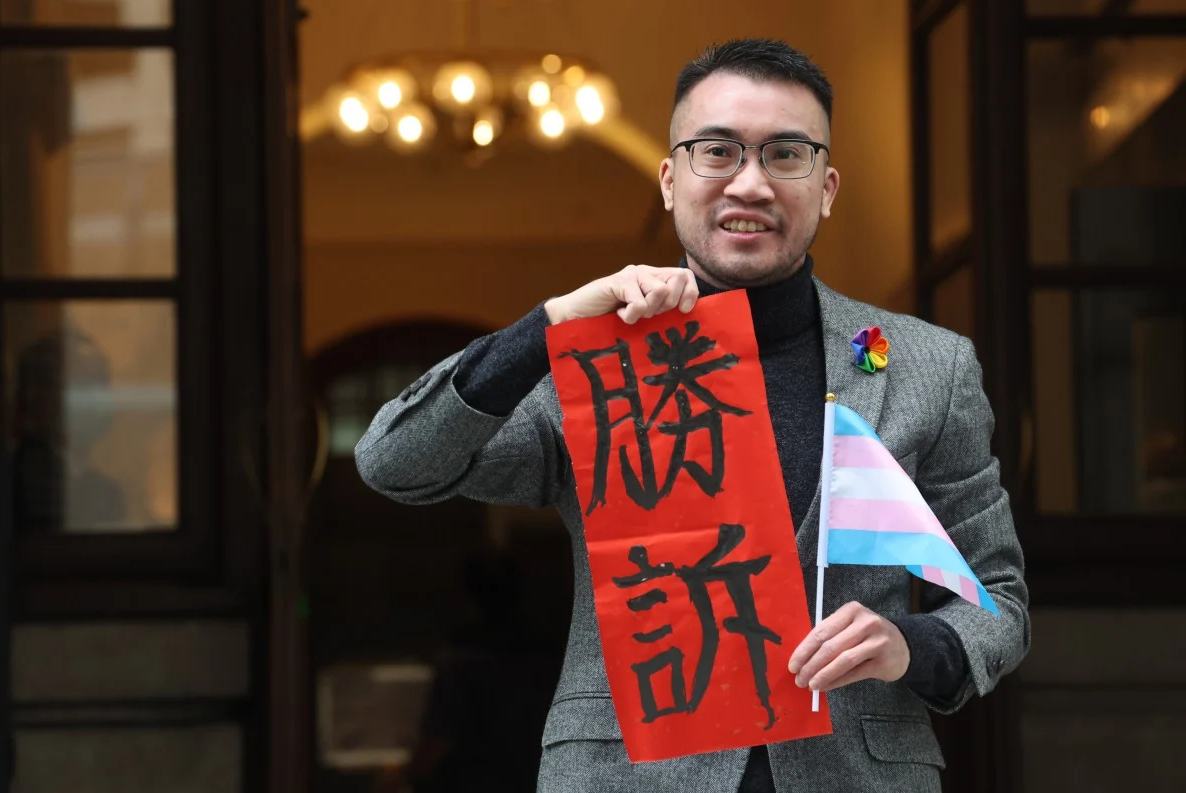
A 33-year-old trans man who has been battling authorities to change his gender from female to male on his Hong Kong ID card since he first launched legal action in 2017, and winning a verdict from the Court of Final Appeal in February 2023, has finally been able to get his new ID card this week.
In an interview with Hong Kong-based South China Morning Post journalist Lo Hoi-ying, Tse told her: “I thought to myself, I have won the lawsuit over a year ago, why do I still have to go through all of this?”
Tse, the chairman of the NGO Transgender Equality Hong Kong, also filed a separate lawsuit against the government in March for what he said was a discriminatory delay in issuing him his new ID card.
He said he would seek monetary compensation for the distress caused by the delay, which could not be forgotten even after changing his card. “Potentially in the future, if there are similar cases for the LGBTQ community, the government should not delay policy updates like this,” he said.
While Tse said that his new ID could make life easier for him and solve some surface issues, he conceded it was only a small step in the fight for trans rights, the South China Morning Post reported.
“The updated policy is not fully trans-inclusive, as measures such as submitting blood test reports for randomized checks still violate our privacy,” he said.
“There are still many hurdles for us, such as marriage. These are all issues we have to confront, which cannot be solved merely by an ID change.”
Additional reporting by Agence France-Presse, Shafaq News, Redaktions Netzwerk Deutschland, Office of Public Affairs for the Council of Europe, BBC News, PinkNewsUK, Irish Examiner, and the South China Morning Post.

The Mexican Senate on Thursday approved a bill that would ban so-called conversion therapy in the country.
Yaaj México, a Mexican LGBTQ rights group, on X noted the measure passed by a 77-4 vote margin with 15 abstentions. The Chamber of Deputies, the lower house of Mexico’s congress, approved the bill last month that, among other things, would subject conversion therapy practitioners to between two and six years in prison and fines.
The Senate on its X account described conversion therapy as “practices that have incentivized the violation of human rights of the LGBTTTIQ+ community.”
“The Senate moved (to) sanction therapies that impede or annul a person’s orientation or gender identity,” it said. “There are aggravating factors when the practices are done to minors, older adults and people with disabilities.”
Mexico City and the states of Oaxaca, Quintana Roo, Jalisco and Sonora are among the Mexican jurisdictions that have banned the discredited practice.
The Senate in 2022 passed a conversion therapy ban bill, but the House of Deputies did not approve it. It is not immediately clear whether President Andrés Manuel López Obrador supports the ban.
Canada, Brazil, Belgium, Germany, France, and New Zealand are among the countries that ban conversion therapy. Virginia, California, and D.C. are among the U.S. jurisdictions that prohibit the practice for minors.
South America
Argentina government dismisses transgender public sector employees
Country’s Trans Labor Quota Law enacted in 2021

Protests have broken out across Argentina in recent weeks after the dismissal of transgender people from their government jobs.
President Javier Milei’s action is in stark contract with the progress seen in 2023, where the government’s hiring of trans people increased by 900 percent within the framework of the Trans Labor Quota Law that had been in place since 2021.
Among those affected is Sofia Diaz, a “survivor” who shared her testimony with the Washington Blade hours after she traveled from Chaco Province to Buenos Aires to protest her dismissal.
Presentes, an LGBTQ news agency, reported the government dismissed more than 85 trans employees in less than two weeks.
Diaz, 49, holds a degree in combined arts. She joined the National Social Security Administration (ANSES) in 2022 under the Trans Labor Inclusion Law. The layoffs began in January and left many people feeling uncertain and anguished. It was her turn a few days ago.
Diaz in an interview recounted how the situation became progressively more complicated, with difficulties in accessing information about her employment status and the eventual confirmation of dismissals through WhatsApp messages. This government action, according to Diaz, violates the law.
“We were on a Friday, I think on March 24, in the office and we have a WhatsApp group of other colleagues from all over Argentina who entered through the trans labor quota and they tell us if we can get our pay stubs on the intranet,” Diaz recalled. “So, I tried to enter, I could not, I talked to two other colleagues and they told me no, they could not, and so we went to another person. He couldn’t either.”
“Some people told us that it could be a system error. Well, we were never calm, let’s say not how this issue of installing fear and the perversion with which they do it ends,” she added. “This sadism of … inflicting pain and speculating with your misfortune and so on … is something that characterizes Javier Milei’s government.”
Diaz recalled a list of those dismissed from the agency began to circulate from the union in the afternoon. A colleague passed it on to her, “and well, unfortunately I was also on that list.”
“At that moment the whole weekend went by with anguish, crying, and talking with other colleagues from other places, not only trans, but everyone, everyone and everyone,” she said. “On Monday when we went to try to enter, we could not enter with the biometric, which is the thumb we had to use every morning to enter.”
Despite the difficult moment through which she is going, the trans activist stressed to the Blade that she will continue protesting and will even sue the government because her dismissal is illegal and “violates the constitution itself.”
The LGBTQ community and its allies have mobilized and organized demonstrations, highlighting the importance of defending the rights won and fighting against discrimination and exclusion. Diaz emphasized the fight is not only for the people affected today, but also for future generations, saying the historical memory of the struggles for inclusion and social justice must be kept alive.
“The Argentine government thus faces a key challenge in human and labor rights, where public pressure and social mobilization can play a determining role in protecting the rights of LGBTQ+ people,” Diaz said.
-

 District of Columbia4 days ago
District of Columbia4 days agoCatching up with the asexuals and aromantics of D.C.
-

 South America4 days ago
South America4 days agoArgentina government dismisses transgender public sector employees
-

 Mexico3 days ago
Mexico3 days agoMexican Senate approves bill to ban conversion therapy
-

 Advice3 days ago
Advice3 days agoShould I divorce my husband for the hot new guy in our building?









